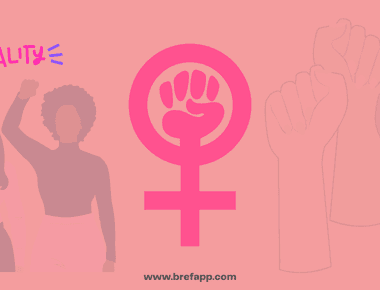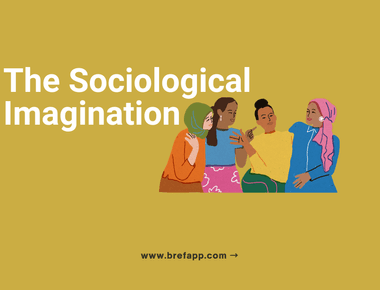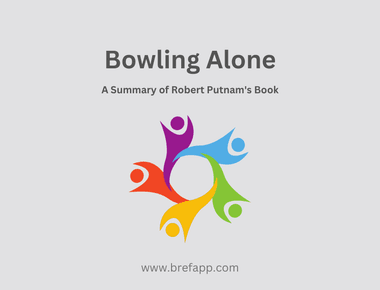
The Theory of the Leisure Class: A Summary of Thorstein Veblen's Book

Thorstein Veblen was an American economist and sociologist who lived from 1857 to 1929. He is best known for his book “The Theory of the Leisure Class”, published in 1899. Veblen was born in Wisconsin and studied at Carleton College and Johns Hopkins University. He later taught at various universities, including the University of Chicago.
“The Theory of the Leisure Class” is a seminal work of economic and sociological theory. In the book, Veblen argued that society was divided into two classes: the leisure class and the working class. The leisure class, according to Veblen, was a group of people who did not work but instead lived off the labor of others. They engaged in conspicuous consumption and conspicuous leisure to signal their social status.
The book is still relevant today, as it provides insight into the dynamics of social and economic inequality. It also sheds light on the ways in which people use material goods and leisure activities to signal their social status and gain acceptance in certain social circles. “The Theory of the Leisure Class” continues to be studied by economists, sociologists, and cultural theorists, and its insights remain relevant to our understanding of modern society.
Overview of the Theory of the Leisure Class\ Veblen’s “The Theory of the Leisure Class” argues that society can be divided into two classes: the working class and the leisure class. The leisure class is a group of people who do not engage in productive labor, but instead, live off the labor of others. Veblen believed that the leisure class relied on inherited wealth, social status, and other forms of privilege to maintain their position.
The characteristics of the leisure class identified by Veblen include a focus on material goods, a disdain for productive labor, and an emphasis on social status and display. They engage in conspicuous consumption, or the consumption of goods and services that signal their social status, such as expensive clothing, jewelry, and homes. They also engage in conspicuous leisure, or the participation in activities that signal their social status, such as attending the opera or taking exotic vacations.
Critics of Veblen’s theory argue that it oversimplifies the dynamics of social and economic inequality. Some argue that it fails to take into account the many ways in which people contribute to society beyond traditional forms of work and labor. Others argue that the theory ignores the role of culture and individual agency in shaping social behavior and identity. Additionally, some critics argue that Veblen’s theory relies on a narrow and elitist definition of what constitutes productive labor and valuable contributions to society.
Conspicuous Consumption\ Conspicuous consumption refers to the consumption of goods and services that signal social status and wealth. Veblen argued that the leisure class engaged in conspicuous consumption as a way of signaling their status to others. This could take the form of expensive clothing, jewelry, and homes, as well as luxury cars and other status symbols.
Critics of conspicuous consumption argue that it is wasteful and contributes to environmental degradation and social inequality. They argue that the focus on material goods as a sign of social status distracts from more important values, such as community, compassion, and empathy. Critics also argue that conspicuous consumption can be harmful to individuals as well, as it can lead to a focus on material possessions at the expense of personal relationships and well-being.
Furthermore, some argue that conspicuous consumption creates a culture of consumption that puts pressure on people to keep up with the latest trends and consume more than they need. This pressure can lead to debt and financial insecurity for individuals and can contribute to economic inequality on a broader scale.
Critics argue that conspicuous consumption is harmful to individuals, society, and the environment and that we should strive to move beyond a culture of consumption to one that values more important things than material goods.
Conspicuous Leisure\ Conspicuous leisure refers to the participation in leisure activities that signal social status and wealth. Veblen argued that the leisure class engaged in conspicuous leisure as a way of signaling their status to others. This could take the form of attending the opera or theater, taking exotic vacations, or participating in exclusive sports and hobbies.
Critics of conspicuous leisure argue that it is often used as a way of excluding others and maintaining social inequality. By participating in leisure activities that are expensive and exclusive, the leisure class is able to signal their status and keep others out. This can contribute to a sense of social isolation and exclusion for those who are not part of the leisure class.
Moreover, critics argue that conspicuous leisure can also be harmful to individuals, as it can lead to a focus on external validation and social comparison, which can be detrimental to personal well-being. The pressure to constantly engage in leisure activities and maintain a certain level of social status can lead to stress and burnout.
Furthermore, critics argue that conspicuous leisure is a waste of resources that could be better used to address social and environmental issues. Rather than spending money on exclusive leisure activities, we could use those resources to address poverty, inequality, and environmental degradation. Therefore, critics argue that we should move beyond a culture of conspicuous leisure to one that values more meaningful forms of leisure that promote personal growth, community, and well-being.
The Evolution of Society and Economy\ Veblen believed that society and the economy were constantly evolving, and that the emergence of the leisure class was a product of this evolution. He argued that as societies became more complex and industrialized, they developed a new set of values and norms that emphasized wealth, status, and leisure rather than hard work and productivity.
Veblen believed that the leisure class played a crucial role in this evolution by shaping and defining cultural norms and values. He argued that the leisure class set the standard for what was considered valuable and desirable in society, and that their consumption and leisure activities influenced the behavior of others.
Moreover, Veblen argued that the leisure class had a significant impact on the economy. He believed that their consumption and leisure activities created demand for luxury goods and services that were not essential to human survival or well-being. This created an opportunity for businesses to profit by catering to the needs and desires of the leisure class.
However, Veblen also believed that the leisure class had a negative impact on the economy, as their focus on conspicuous consumption and leisure created a culture of wastefulness and excess. He argued that this contributed to a sense of dissatisfaction and unhappiness among individuals, as well as broader social and economic problems such as inequality and environmental degradation.
Veblen’s theory of the leisure class highlights the complex interplay between culture, society, and the economy, and the ways in which these factors shape and influence one another.
Criticisms of the Theory of the Leisure Class
While Veblen’s Theory of the Leisure Class has been influential in shaping our understanding of consumer culture and economic inequality, it has also faced criticisms over the years.
One of the main criticisms of Veblen’s theories is that they oversimplify the relationship between culture, society, and the economy. Some critics argue that Veblen’s theories focus too narrowly on the behavior of the leisure class, ignoring the complexities of other social and economic groups. Others argue that Veblen’s theories are too deterministic and do not account for the agency and creativity of individuals.
Furthermore, some critics argue that Veblen’s theories are outdated and do not reflect the complexities of contemporary consumer culture. While Veblen’s theories were developed in the late 19th and early 20th centuries, contemporary consumer culture has undergone significant changes in response to globalization, digital technology, and other factors.
Despite these criticisms, however, many scholars continue to find value in Veblen’s theories and his analysis of consumer culture and economic inequality. The book remains relevant today in its critique of conspicuous consumption and leisure, and its insights into the ways in which cultural values and norms shape our economic behavior.
While the Theory of the Leisure Class has faced criticisms over the years, it remains an important and influential work in the study of consumer culture, economic inequality, and the relationship between culture, society, and the economy.
FinalToughts\ Thorstein Veblen’s Theory of the Leisure Class is a seminal work that offers important insights into the relationship between culture, society, and the economy. The book defines the concept of the leisure class and examines the ways in which their conspicuous consumption and leisure activities shape our understanding of social status and wealth.
Veblen’s analysis of the evolution of society and the economy, and the role of the leisure class in shaping cultural norms and values, remains relevant today. The book has also been influential in shaping our understanding of economic inequality and the impact of consumer culture on individuals and society.
The criticisms of Veblen’s theories do not diminish the book’s importance and legacy. Rather, they serve as a reminder of the ongoing need to critically examine and refine our understanding of the complex interplay between culture, society, and the economy.
The Theory of the Leisure Class continues to be a thought-provoking and influential work, and its impact on the study of consumer culture and economic inequality is likely to endure for many years to come.
-—
Tags
Related Posts





Quick Links
Categories

